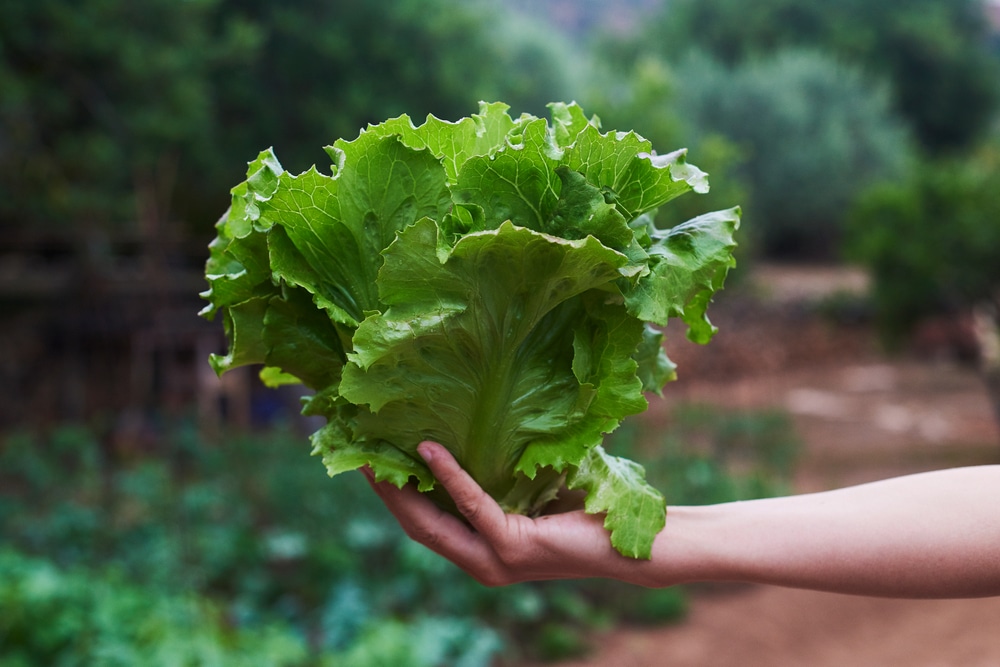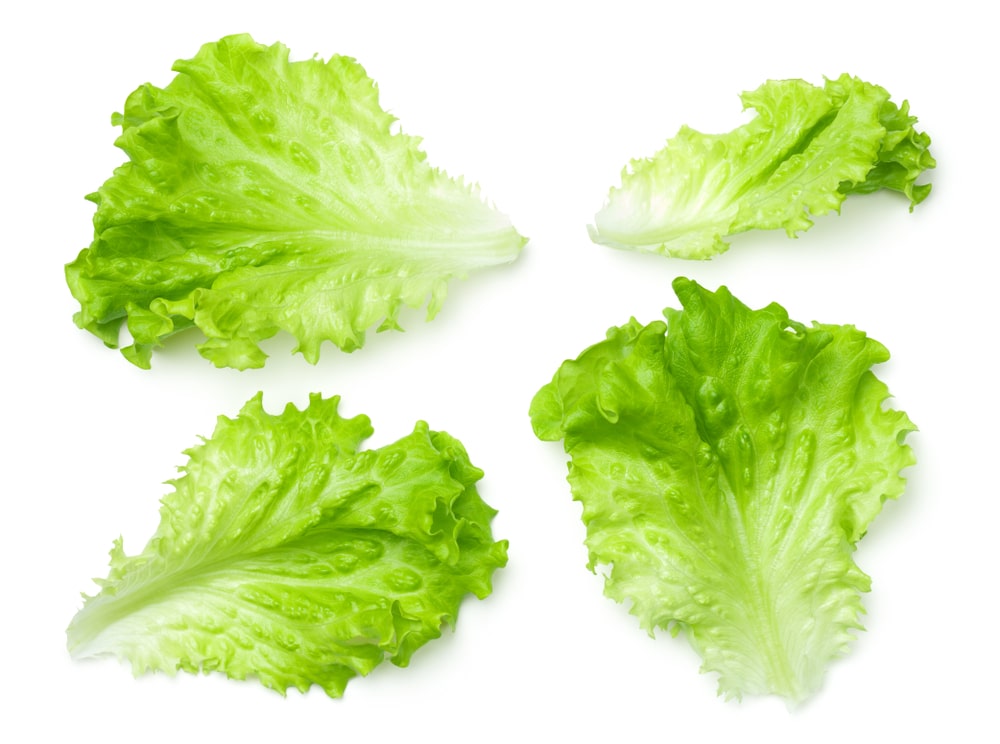Salads are a great way to get lots of nutrition in a single bowl. They can be made up of almost any combination of fruits, vegetables, and proteins, making them an incredibly versatile dish. When finding ingredients for your salad, lettuce is often the go-to. It is known for its crunchy texture, mild flavor, and nutrient-rich content. But can dogs eat lettuce?
Lettuce is a popular food item dogs can safely consume in moderation. Some varieties of lettuce, such as iceberg, arugula, and romaine, do not contain ingredients that harm your dog. These leafy green vegetables are high in water and low in calories, making them a good snack for dogs. They also provide essential vitamins and minerals that keep your furry friend healthy.
Table of Contents
Is Lettuce Good For Dogs To Eat?
Yes, lettuce is typically considered safe for dogs to eat. As long as it is washed and prepared correctly, there are no harmful effects associated with it. Lettuce is an incredibly healthy food for dogs, as it contains vitamins A, C, and K. In addition, it supplies essential minerals such as calcium and magnesium. These nutrients keep your puppy’s immune system strong and aid in digestion.
Benefits of Eating Lettuce for Dogs

Lettuce can be a great source of dietary fiber for your pup. Fiber helps dogs to feel full longer, which can prevent overeating. The high water content of lettuce can also help keep your puppy hydrated, especially during the hot summer months.
Here, we will discuss some crucial benefits of lettuce for your dog.
Chlorophyll
Lettuce is an excellent chlorophyll source, the green pigment found in all plant cells. Chlorophyll helps to reduce inflammation, supports healthy bacteria in the gut, and can even improve breath odor by combating harmful bacteria.
Its antioxidants also help fight free radical damage from environmental toxins. Furthermore, this nutrient helps detoxify the body and reduces cancer risk.
Fiber
Fiber helps keep your dog’s digestive system running smoothly. It increases the bulk of your pup’s stool and can even help relieve constipation or diarrhea.
It’s also beneficial for maintaining a healthy weight as it provides satiety without adding many calories, regulates blood sugar levels, and lowers cholesterol.
Vitamin A
Vitamin A is essential for maintaining healthy skin and fur, as it strengthens cell membranes and helps keep your pup’s coat shiny.
It also helps maintain vision health, regulate growth hormones, boost immunity, and detoxify the body.
Vitamin C
Vitamin C is essential for producing collagen, which helps to keep your pup’s skin and bones strong. It also helps boost the immune system, which helps combat infections and viruses.
Vitamin K
Vitamin K helps in blood clotting and proper metabolic functioning. It helps reduce inflammation, allowing your pup to heal faster from wounds or injuries.
Minerals
Lettuce is rich in minerals, such as calcium and magnesium. Calcium helps strengthen your pup’s bones and teeth, while magnesium helps with energy production and muscle contraction.
In addition, potassium assists with heart health by regulating blood pressure, and zinc helps boost the immune system. All these essential minerals help keep your furry friend healthy.
Can Dogs Eat All Types Of Lettuce?
Dogs can eat all types of lettuce but should not make it a regular diet. Plain and straightforward varieties, including iceberg, romaine, Boston Bibb, bok choy, and endive, are all for your pup to enjoy in moderation. These vegetables are rich in vitamins and minerals and contain a high water content to keep your dog hydrated.
But when feeding lettuce to your pup, ensure you rinse it thoroughly to remove any dirt or bacteria that may be present. You should also avoid adding any seasoning or dressing to the lettuce, as this could harm your pup.
What Happens If A Dog Overeats Lettuce?
Like with any food, some risks can be associated with feeding lettuce to your pup. If a dog overeats lettuce, it may experience digestive issues such as gas, bloating, and diarrhea.
Additionally, some dogs may have an allergic reaction to the vegetable. Contact your veterinarian immediately if your pup has difficulty digesting the lettuce or is showing signs of an allergic reaction.
Is Spinach And Cabbage Safe For Dogs?
Limited amounts of spinach are not only safe for dogs but also beneficial as it contains a generous amount of water and vitamins. However, it does also have some drawbacks when it comes to canine health. Eating too much spinach can be detrimental to your dog’s health as it contains high levels of oxalic acid, which hinders the body’s absorption of calcium and can even lead to kidney damage.
On the other hand, cabbage is a powerhouse of nutrition and can be beneficial for dogs when fed in moderation. Cabbage is full of antioxidants, vitamins, and minerals that are essential for good health. It also contains fiber to aid digestion and sulforaphane, which has anti-inflammatory properties. Additionally, cabbage may help reduce the risk of cancer and promote healthy bone development in dogs.
Can Puppies Eat Lettuce?
Puppies can consume lettuce in small amounts. Lettuce contains beneficial nutrients like Vitamin A, potassium, and folate, which can contribute to a balanced diet. However, excessive lettuce consumption may cause gastrointestinal upset due to its high fiber content.
When introducing new food into your puppy’s diet, starting with small portions and monitoring for adverse reactions is essential. All in all, moderate amounts of lettuce can be beneficial when incorporated into a balanced diet for puppies.
What Is The Best Way To Serve Lettuce To Dogs?
The best way to serve lettuce to puppies is chopped into small pieces and mixed with their regular food. It will help prevent choking on large portions and make it easier for the puppy to digest. Additionally, it is essential to ensure the lettuce is free from pesticides or other contaminants before serving it to puppies.
In Conclusion: Can Dogs Eat Lettuce?
Lettuce is a safe and nutritious snack for your dog. It provides essential vitamins and minerals that can help keep your furry friend healthy and happy. Remember not to give them too much lettuce at once, as it may cause gastrointestinal distress. This will help keep your pet safe and healthy!
If you have experience feeding lettuce to your dog, we’d love to hear about it! What tips or recommendations do you have for others? Let us know in the comments below!
